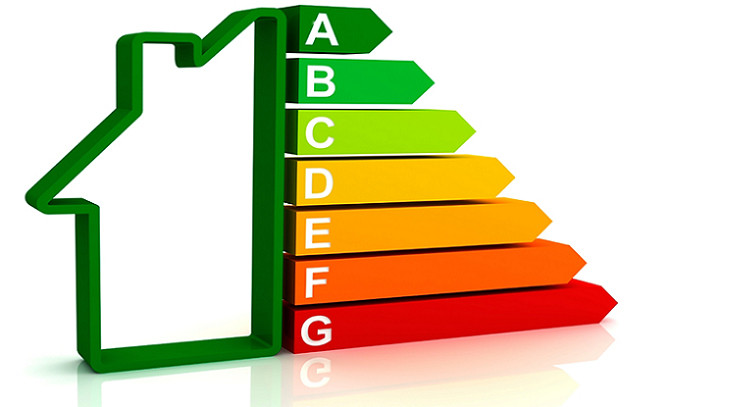Have you ever sat down to pinpoint information regarding Commercial Energy Performance Contractors just to find yourself staring aghast at your computer monitor? I know that I have.
Landlords take note: it’s illegal to rent a property with an EPC rating lower than E. An Energy Performance Certificate is needed to show that the property meets this minimum threshold. If your EPC rating leaves a little to be desired, don’t worry! There are all kinds of ways you can improve it. Doing so will make your home more cosy, your bills cheaper, and your carbon emissions lower. You might even improve the value of your property, too. An EPC won’t reflect any changes made since the inspection date. If you have made changes that you think may have improved your rating, you will need to pay for a new inspection. In an ideal world, every company possess the required time and resources to build or refit a commercial building to be more energy efficient. However, this is not always the case. More often than not, the capital investment required to implement these changes is one of the main barriers. From April 2023, new legislation will come into force where it will be an offence to let a property which does not achieve a minimum 'E' efficiency standard, we look at the possible impact for landlords in England and Wales. The Energy Performance of Buildings (England and Wales) Regulations 2012 require an Energy Performance Certificate (EPC) is procured when a property is sold, let or refurbished. Many commercial buildings in the UK require a Commercial EPC when it is constructed, sold or let. The Commercial EPC is displayed in a similar way to that of a domestic property, with the energy rating shown on an A-G scale. As with a domestic EPC, a commercial EPC is valid for 10 years. Commercial Energy Performance Certificates (EPC) are energy surveys that determine how energy efficient a building or commercial premises is. The ratings on a commercial EPC start from G (least energy efficient), going up to an A for the most energy efficient building possible.
Where you hold a valid EPC or you are not otherwise required to obtain an EPC for a property, a new EPC may see a property’s rating downgraded which may engage MEES obligations where the property could otherwise have been lawfully let for the foreseeable future. A Commercial EPC will show the Energy Rating from a Band A to a Band G. Commercial premises with a large quantity of solar panels will like to be and the upper bands, but premises with lights that are not low energy are likely to be in the lower bands. If you are a Property Owner, Freehold Investor, Pension Funder, Landlord and for occupiers who wish to assign or sublet space, with an EPC rating of ‘F’ or ‘G’ you will need to take action and raise the energy efficiency of the property before granting a new lease. For newly built or modified properties, when a building is being constructed or modified and is physically complete, it is the responsibility of the person carrying out the construction to give an EPC and a recommendation report to the building owner and to notify Building Control that this has been done. A well-thought-out strategy appertaining to mees regulations can offer leaps and bounds in improvements.
Green Deal
The energy performance of a building is shown as a Carbon Dioxide (CO2) based index. The better the rating, the more energy efficient the building is, and the lower the fuel bills are likely to be. An EPC will tell you how energy efficient a home is on a scale of A-G. The most efficient homes, and therefore ones with the lowest energy fuel bills, are in band A. The EPC will include recommendations on how to improve the home’s energy efficiency and therefore how to save you money and help the environment. Only professionally qualified Domestic Energy Assessors with a Domestic Energy Assessment Diploma can provide this service. EPCs can be a deciding factor as part of a grant scheme approval and, if a certificate has expired – its current shelf-life is 10 years – a newer EPC will better reflect current fuel generation practices and costs. So, it is fair to say that EPCs have, over the years, focused people’s thinking about the profligacy of our energy use, and it is worth considering other ways of moving the little green arrows of current and potential consumption from G up towards A. An Energy Performance Certificate (EPC) shows the energy current and potential energy rating of a property, known as a ‘SAP rating’. A ‘SAP’ rating stands for S tandard A ssessment P rocedure and is the governments recommended system for producing a home energy rating. The process of obtaining an EPC involves what is known as an Energy Survey. To carry out this survey, an assessor will visit the property in question and will examine various aspects pertaining to its energy expenditure and efficiency. This includes a number of factors closely related to the overall design and build of the property. Do your research about epc commercial property before entering into any long term transactions.All Commercial properties being sold, let or having a lease reassigned, are required by law to have an Energy Performance Certificate (EPC). The survey for a Commercial Energy Performance Certificate is more detailed than the Domestic Energy Performance Certificate and usually takes considerably longer due to the size and elements involved. Heating, Lighting and activity have a greater bearing on the rating, than with Domestic E.P.Cs. An EPC assesses the energy performance of a property, from "A" representing the most energy efficient property to "G" representing the least energy efficient property. It must be carried out by a qualified Domestic Energy Assessor and will also show a building's environmental impact by indicating its carbon dioxide emissions. The assessor looks at factors such as the wall, floor and roof insulation, boiler efficiency, and even the type of lightbulbs in use. All EPCs can be found on the national register accessible here. To meet new EPC legislation changes 95% of commercial landlords will need to make improvements to their properties, with installing insulation (30%), double glazing (27%) and a new, energy-efficient boiler (26%) the most likely upgrades The anticipated cost of this investment is set to be £95,400 per landlord – or 3% of the total portfolio value. An Energy Performance Certificate (EPC) looks broadly similar to the energy labels now provided with refrigerators and washing machines. Its purpose of the EPC is to indicate how energy efficient a building is. The certificate will provide an energy rating of the building from A to G, where A is very efficient and G is the least efficient. An EPC refers to Energy Performance Certificate. An Energy Performance Certificate provides an energy rating for your home on a scale of A-G. A means the most efficient rating and G is the least efficient. An EPC also highlights areas to improve the energy efficiency of your home. Tips can include small changes such as using energy saving lightbulbs to larger amendments such as installing solar panels and cavity wall insulation. An understanding of the challenges met by non domestic epc register can enhance the value of a project.
Energy Performance Of Buildings
Any building that is even partially occupied by a public authority such as a local council, college or NHS Trust and has a total floor space greater than 250 square metres and, which is regularly visited by the public has to have a DEC on display on a page no smaller than A3 size in an easily accessible location. Failure to do so can incur a £500 fine. Private organisations aren’t required to have a DEC, but they do need to have an EPC. Sellers are, by law are required show proof that they have ordered the report but don’t need to have received an EPC before marketing their property, realistically the EPC must be on all details that are used for advertising and with the agent within 28 days after the first day of marketing or you can be fined. Aside from going to market, an EPC is also needed when your property is viewed, when written information is requested, or the moment when contracts are being exchanged. In any case, it’s best to have this requirement taken care of ahead of time. The requirement for an EPC has been set by a European Directive which all member states have to implement. It is one part of a number of measures to improve energy efficiency and cut down carbon emissions. The extent to which your EPC will affect your house price is determined by where the rating sits on the scale, and where you are in the country. For example, in London improving your EPC has much less effect than in the North East. This is linked to lifestyle differences and property prices, which vary between different areas. Advising on matters such as mees will provide benefits in the long run.For selling and letting, as soon as a building is in the process of being offered for sale or rent, it is the responsibility of the seller or landlord to make available an EPC to the prospective buyer or tenant. An energy performance certificate assesses how energy efficient a property is. This can include anything from the use of energy efficient lightbulbs to insulation and hot water systems. The less energy efficient a property is, the higher the energy bills will be. An EPC also shows the potential score for a property, if the recommended changes were made, and an environmental impact rating. An EPC is an Energy Performance Certificate which gives a property an energy efficiency rating from A (most efficient) to G (least efficient) and is valid for 10 years. EPCs were first introduced by the UK government on 1st August 2007 in England and Wales. Energy Performance Certificates (EPCs) are needed for most domestic properties being marketed for sale or let. Only accredited domestic energy assessors will be able to carry out assessments to produce Energy Performance Certificates Trafford Surveyors employ in-house BRE-accredited Energy Assessors, who produce EPCs for all types of properties. If you believe you have been unfairly penalised for not having an EPC, you have the option to appeal and ask for a review. You should find details on how to go about this on your penalty charge notice. A team of Energy Assessors and Chartered Surveyors are uniquely placed to give advice on commercial epc and provide a complete energy consultancy service.
Energy Performance Related Features
From 1 April 2020, all private rented properties must have an EPC rating of A to E. Properties with an EPC rating of F or G cannot be rented out unless they are covered by a statutory exemption. This stops landlords from letting the most energy inefficient properties to tenants who may struggle to keep the property warm. It also helps to reduce carbon emissions by encouraging landlords to make energy efficiency improvements. The energy performance of a building is shown as a carbon dioxide (CO2) based index. Each energy rating is based on the characteristics of the building itself (the fabric) and its services (such as heating, ventilation and lighting). Hence this type of rating is known as an asset rating. The asset ratings will reflect considerations including the age and condition of the building. An EPC is required for all privately rented residential accommodation, except where individual tenants of a shared house have separate tenancy agreements. These properties do not require an EPC. One can unearth extra information appertaining to Commercial Energy Performance Contractors on this UK Government Publications page.Related Articles:
Background Insight About Non-Domestic EPC ContractorsAdditional Insight With Regard To Fully Accredited Energy Assessors
Background Information On Non-Domestic Energy Performance Certificate Assessors
More Background Findings With Regard To Commercial Energy Performance Assessors
Further Insight About Commercial and Domestic EPC Assessors
Background Findings With Regard To Professionally Qualified Domestic Energy Contractors
Extra Insight On Non-Domestic Energy Performance Contractors






